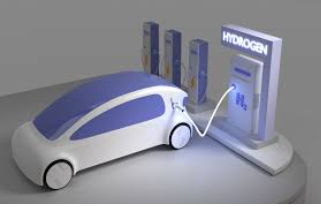Hydrogen Fuel Cell Electric Vehicles: The Future Of Transportation

The Union Roads and Highways Authority’s recent launch of a novel hydrogen-based advanced fuel cell electric vehicle (FCEV) pilot project marks a significant stride towards environmental preservation and a departure from traditional fossil fuels. Securing comprehensive electric vehicle insurance is essential for owners looking to protect their investments in the rapidly advancing landscape of electric vehicle technology.
As India accelerates its automotive technology, the unpredictable trajectory prompts a crucial need for reliable electric vehicle insurance, providing comprehensive coverage, including roadside assistance, a cashless workshop network, and accident protection.
Hydrogen Fuel Cell Vehicles (HFCEVs)
A hydrogen fuel cell vehicle (HFCEV) converts stored hydrogen into electrical power through a fuel cell, similar to electric cars. HFCEVs produce only warm air and water vapour, emitting no exhaust fumes, surpassing traditional combustion engines in efficiency and environmental impact.
Significance Of Hydrogen-Powered Vehicles
India’s embrace of hydrogen fuel cell electric vehicles (HFCEVs) aims for “energy self-sufficiency” by 2047, reducing reliance on fossil fuels for a cleaner, environmentally friendly future. HFCEVs, emitting only water, represent a leading zero-emission choice.
Why Hydrogen?
Hydrogen in fuel cell vehicles has advantages. It burns to produce only water and offers three times the energy of petrol. The fuel cell converts hydrogen and oxygen into electrical energy, aligning with India’s quest for clean, affordable energy from renewable sources and biomass.
Future Of Hydrogen-Powered Vehicles In India
In the near to medium term, significant car makers are gearing up to introduce battery electric vehicles (BEVs) and hydrogen fuel cell electric vehicles (FCEVs). One noteworthy example is the collaboration between BMW and Toyota, resulting in the BMW iX5 utilising a hydrogen fuel cell electric drive. Similarly, Ineos Automotive’s partnership with Hyundai for the Grenadier hydrogen FCEV and Hyundai’s commitment to a carbon-neutral brand by 2045 with models like the 2023 Hyundai Nexo and Hyundai Staria Fuel Cell showcase the diverse landscape of upcoming hydrogen-powered vehicles.
Government Initiatives
The Indian government’s commitment to affordable and environmentally friendly energy is evident through various initiatives:
- Considering hydrogen production with 2000 megawatts of solar and wind energy.
- Conducting hydrogen auctions to reduce greenhouse gas emissions and explore diverse applications, including powering cars.
- This mandate requires industries like oil refiners and fertiliser manufacturers to require ten percent of hydrogen from domestic green hydrogen sources.
The benefits of buying electric cars in India include reduced carbon emissions, lower operational costs, and government incentives, contributing to a more sustainable and cost-effective mobility solution. When comparing electric cars vs petrol cars in India, one must consider factors such as environmental impact, cost of ownership, and the evolving infrastructure supporting electric vehicle adoption. Claims are subject to terms and conditions set forth under the motor insurance policy. *
As India navigates the evolving landscape of automotive technology, the government’s initiatives towards hydrogen-based vehicles present a promising future. Acquiring reliable electric car insurance is crucial for owners seeking to safeguard their electric vehicles against potential risks and uncertainties on the road. The integration of green hydrogen, renewable energy sources, and advancements in fuel cell technology position India on the path to cleaner, more sustainable transportation, making the shift towards hydrogen-powered vehicles a significant paradigm shift in the nation’s automotive industry. Claims are subject to terms and conditions set forth under the motor insurance policy. *
*Standard T&C Apply
Disclaimer: The content on this page is generic and shared only for informational and explanatory purposes. It is based on several secondary sources on the internet and is subject to changes. Please consult an expert before making any related decisions.
Insurance is the subject matter of solicitation. For more details on benefits, exclusions, limitations, terms, and conditions, please read the sales brochure/policy wording carefully before concluding a sale.




